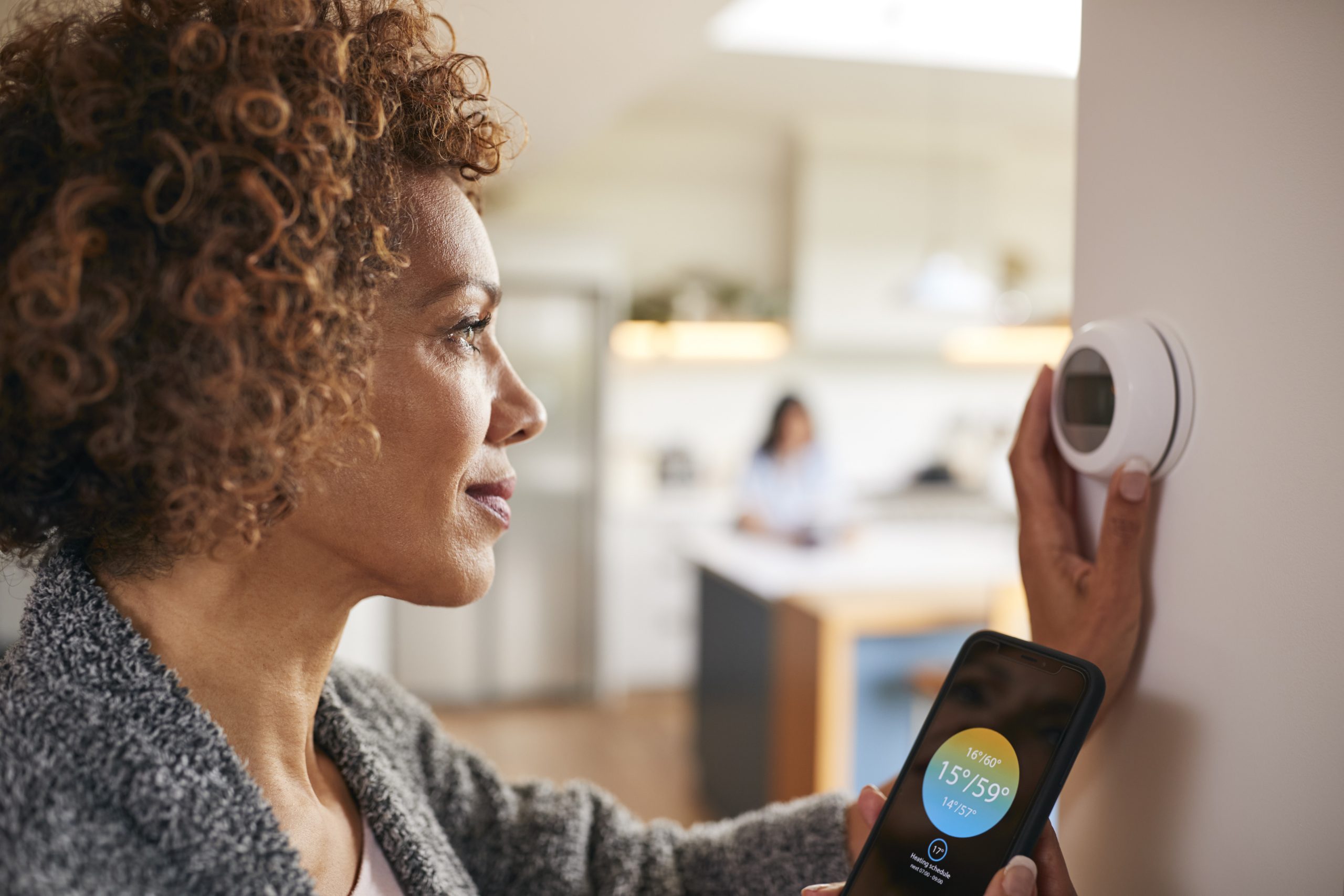In full transparency, the following is a media release from Sen. Ed Markey, who was elected by voters in the Commonwealth of Massachusetts to serve the state in Washington DC in the US Senate. He is a Democrat. (stock photo)
***

WASHINGTON DC – Today, January 20, Senator Edward J. Markey (D-Mass.) and Congressman Jamaal Bowman (NY-16)introduced the Heating and Cooling Relief Act, legislation to invest in and expand the Low Income Home Energy Assistance Program (LIHEAP) to universalize energy assistance for all of those who need it.
Currently, it is estimated that only 16 percent of households eligible for LIHEAP are actually served.
“Access to life-saving heating and cooling is a basic human right that ensures our health and safety and should not be reserved only for those who can afford it,” said Senator Ed Markey (D-Mass.). “This winter, families should not have to choose between paying energy bills or suffering chills. I am grateful that Congressman Bowman and I are fighting to make sure that home energy funding—a critical lifeline for families throughout the country—will be available to all of those who need it. Our Heating and Cooling Relief Act would provide LIHEAP funding to millions more Americans and ensure that the program has all the support it needs to enhance outreach efforts and serve all eligible households. The bill also takes steps to reduce the energy burdens of LIHEAP recipients and cut down our fossil fuel use by increasing investments in weatherization. The Heating and Cooling Relief Act is the ambitious and comprehensive legislation we need to help ensure the health and safety of American families and support a just transition away from fossil fuel consumption.”
[broadstreet zone=”53130″]
“There is no reason why, in the richest nation on Earth, people in our communities should be forced to choose between staying warm in the winter or cool in the summer and being able to make rent or put food on the table,” said Congressman Jamaal Bowman (NY-16). “Senator Markey and I are working toward an America that respects our collective humanity and our Heating and Cooling Relief Act makes it so that every family can afford their energy bills. This is a racial and economic justice issue, with Black, Latino and Indigenous households all experiencing disproportionately high energy burdens. The lack of energy assistance is also a public health crisis, with high energy burdens associated with a greater risk for respiratory diseases and heat strokes. The fact is that no one, anywhere in this country, should have to resort to using their stoves or turning on space heaters because of exorbitantly high bills. This legislation is a bold approach to energy assistance that meets the moment by making energy assistance much more accessible to tens of millions more people and I am proud to have a partner in Senator Markey as we take on this fight.”
“No person or family should ever go without adequate heat,” said Senator Kirsten Gillibrand (D-N.Y.). “This bill would ensure that low-income families never pay more than 3% of their annual income on energy costs, even in the coldest winter months. As New York continues facing extreme and potentially dangerous cold weather, we must ensure that every person has access to reliable, affordable, and sufficient heat to stay safe at home.”
“No family should have to choose between paying their energy bills and putting food on the table during the cold winter months. LIHEAP is a lifeline for our communities. The Heating and Cooling Relief Act will expand LIHEAP access and will save families from housing and food insecurity as they cope with high energy bills. It will also increase funding for weatherization, promote renewable energy use, and aid with climate adaptation – all crucial to our work tackling the climate crisis,” said Senator Elizabeth Warren (D-Mass.).
[broadstreet zone=”59983″]
A copy of the bill text can be found HERE.
Specifically, the Heating and Cooling Relief Act:
- Increases annual funding for LIHEAP to $40 billion and expands eligibility to ensure that no household pays more than three percent of its annual income on energy costs;
- Minimizes the barriers to administering and applying LIHEAP by allowing households to self-attest to eligibility criteria; increases the administrative cap for outreach, technological, and staffing purposes; and ensures LIHEAP coordinators are paid at least a living wage;
- Protects consumers by ensuring that no eligible household has its utilities shutoff or pays late fees, that every household receiving funds can have its utility debt cleared, and that utility companies set up discounted payment plans to support consumers;
- Ensures states can use LIHEAP to address climate adaptation by increasing funding for cooling assistance and ensuring households can access utility assistance during major disasters; and
- Increases funding made available for weatherization through LIHEAP, and establishes a new Just Transition Grant for states and localities to help reduce energy burdens for LIHEAP-eligible households and promote renewable energy usage.
Senator Markey and Congressman Bowman have been champions for energy and utility justice issues throughout the COVID-19 pandemic.
[broadstreet zone=”59946″]
On January 5, 2022, Congressman Bowman, Senator Markey, and Congresswoman Schakowsky led a letter to the Federal Energy Regulation Commission (FERC) urging the Biden administration to protect consumers from unfairly high heating and energy prices. Last year, Congressman Bowman introduced the Public Power Resolution with Congresswoman Bush to make power a public utility, and he also introduced the Broadband Justice Act to deliver accessible, free broadband to every subsidized household in the nation. As part of the American Rescue Plan, Senator Markey advocated for $20 billion in funding for Emergency Rental Assistance (ERA) and $4.5 billion in additional funding to LIHEAP.
Last Congress, he also introduced a bill that would have set the sense of Congress that states and utilities should issue a moratorium on gas and electric service disconnections, late fees, reconnection fees, rate hikes, and other penalties for all consumers as a result of the COVID-19 pandemic.
Original co-sponsors of this legislation include Senators Gillibrand and Warren, and Representatives Jesús G. “Chuy” García (IL-04), Eleanor Holmes Norton (DC), Rashida Tlaib (MI-13), Adriano Espaillat (NY-13), Ayanna Pressley (MA-07), Mark Takano (CA-41), Emanuel Cleaver, II (MO-05), Jan Schakowsky (IL-09), Alexandria Ocasio-Cortez (NY-14), Mondaire Jones (NY-17), Frederica S. Wilson (FL-24), Nydia Velazquez (NY-07), André Carson (IN-07), Gwen S. Moore (WI-04), Barbara Lee (CA-13), Bonnie Watson Coleman (NJ-12), Carolyn B. Maloney (NY-12), Grace Meng (NY-06) and Pramila Jayapal (WA-07).
[broadstreet zone=”59948″]
Endorsing organizations include: National Energy Assistance Directors’ Association (NEADA), National Consumer Law Center (NCLC), National Housing Law Project, Public Citizen, Sunrise Movement, Evergreen Action, Green and Healthy Homes Initiative (GHHI), Sierra Club, Local Initiatives Support Coalition (LISC), Food and Water Watch, Rocky Mountain Institute, Center for Biological Diversity, Ecological Justice Initiative, Elevate, Dandelion Energy, Building Electrification Institute, Rewiring America, Association for Energy Affordability, Sustainable Westchester, New York Lawyers for Public Interest, Bloc Power, NY Geothermal Energy Organization, and NYC-Environmental Justice Alliance, Massachusetts Association for Community Action (MASSCAP), and NY Renews.
“The Heating and Cooling Relief act would end energy poverty in the US by providing that no family would spend more than 3 percent of their family’s budget on home energy and would provide states with the flexibility to weatherize up to 1 million homes per year,” said Mark Wolfe, Executive Director of the National Energy Assistance Directors’ Association (NEADA). “The net result will be an end to the stubbornly high utility arrears and shut-offs that low income families have been struggling with for many years.”


